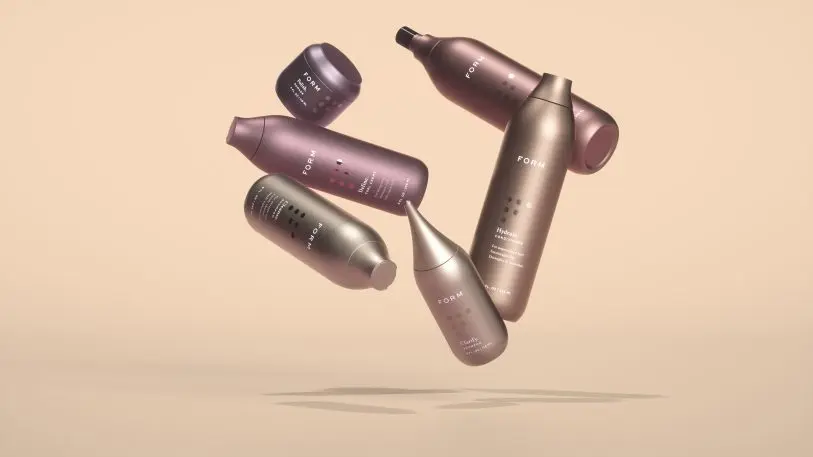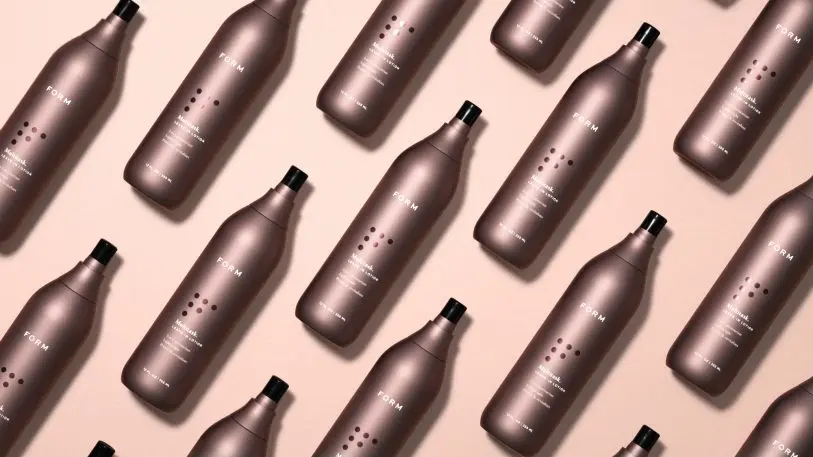In recent years, beauty has become increasingly intimate. Brands like MatchCo scan your skin to create a fully personalized foundation; haircare startups like Function of Beauty allow customers to target specific hair concerns—say, split ends or frizz—with personalized shampoo and conditioner. A skincare brand called Skin Inc tailors a serum-based skincare regimen to users based on a quiz.
Customers now expect—no, demand—customization from brands. But Tristan Walker, founder and CEO of Walker & Company Brands—the health and beauty startup behind shaving brand Bevel—believes that in pursuing personalization, some brands might overlook the importance of how customers actually use those products.
“It’s not only about product customization,” Walker says. “It’s about usage. And that’s something that I think a lot of these personalization companies lose sight of.”

Form wants to be both inclusive and minimalist, serving a diverse audience with just a handful of products and guiding women who feel overwhelmed by all the choices available to them.
“We asked the question: Why haven’t brands changed?” Walker explained to Fast Company. “Why are most haircare brands focused on a single hair texture—curly, or straight, or kinky, or coily? Why are brands focused on like a single ingredient? . . . Why is it that these brands are forcing consumers to cross over into different brands for all of their haircare needs?”
Form’s pitch to consumers is a minimal, 10-product lineup of shampoos, conditioners, and styling products that range from $22 to $32. The packaging and marketing recall the sleek aesthetic of Bevel, down to the muted color palette. Form claims the line is free of sulfates, parabens, and phthalates—ingredients that many higher-end haircare brands now steer clear of.
“We have completely uncompromising standards with the quality of our ingredients and our formulation,” Walker says. “The reason why we’re targeting the prestige category is to show people just that.”
But what jumped out to me most was the Form consultation, a questionnaire that helps women determine which products are best suited to their hair, as well as a hair analysis that Form is beta testing. The latter builds on the consultation by analyzing hair samples to offer more personalized feedback; using this feature, customers can also tangibly see how Form’s products are impacting their hair. “We want to, over time, show people that we do what we say we’re going to do,” Walker says.
Walker & Co. marketing head, Cassidy Blackwell, walked me through a Form consultation, which included the expected questions about my haircare routine—how often I wash my hair and what products I use. But the consultation also inquired about my exercise routine—or lack thereof, in my case—including how often I swim, and asked for my zip code, to take into account how the weather might affect my hair. Interspersed between all these questions were what Blackwell referred to as “Form facts,” which offered tidbits on how much hair people shed each day, how chlorine can affect hair, and more.
Once the consultation is complete, Form recommends a lineup that caters to your haircare needs. In my case, for example, Form’s recommendation included the Hydrate: Moisturizing Conditioner—which is meant for unprocessed hair—rather than the Revive: Restorative Conditioner, which focuses more on battling breakage and heat damage. After you make a purchase, Form outlines how you should use each product; one of the most important criteria for his team, Walker says, was ensuring the products would play well together.

“The consultation thing is so uniquely interesting because it really speaks to what software can enable for an industry like this,” Walker says. “It’s online right now, but think about what it could mean if it were offline.”
Recognize your brand’s excellence by applying to this year’s Brands That Matter Awards before the early-rate deadline, May 3.

